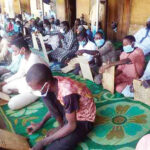… including 22,251 female entrepreneurs
On 30th May, 2017, then Acting President of Nigeria, Professor Yemi Osinbajo, assented to the Bill on Secured Transactions in Movable Assets (Collateral Registry Act).
Although the Central Bank of Nigeria (CBN) had previously issued guidelines on the establishment of the collateral registry, hitherto, there had not been any legislation on the subject. This act codifies CBN’s earlier guidelines, and retains the same registry.
The act aims to provide for the registration and regulation of security interests in movable assets by enhancing financial inclusion in Nigeria, stimulating responsible lending to MSMEs and facilitating access to credit secured with movable assets.
Barely two years after, recent statistics seen by Daily Trust from the National Collateral Registry (NCR), indicates that a cumulative of 154,827 MSMEs have used their movable assets to obtain loans from financial institutions out of which, 22,251 were female MSMEs.
The statistics proves that a considerable number of borrowers secured credit from financial institutions in 2018 using their movable assets as collateral. The high number of borrowers that secured credit in 2017 is attributable to the high participation of smallholder farmers under the CBN Anchor Borrower’s Programme using cross-guarantee as collateral.
The data further indicates that the upsurge is attributable to the increase in the number of microfinance banks on the NCR portal as well as increased participation of deposit money banks and non-bank financial institutions.
Out of the total amount of N1,209,381,006,933. 90 (one trillion, two hundred and nine billion, three hundred and eighty one million, six thousand and nine hundred and thirty-three naira, ninety kobo) a sum of N43,618,262,792.17 (forty-three billion, six hundred and eighteen million, two hundred and sixty thousand, seven hundred and ninety-two naira, seventeen kobo) went to female MSMEs.
The development is especially important because, three variables (financial management information skills, the prior banking relationships and the level and quality of collateral) constitute risk reducing factors, which an owner-manager must package properly in a feasibility study to put his case for loan applications better.
Most MSMEs hardly make it through their first five years of existence because of insufficient capital. Funds are necessary for the smooth running of any business.
MSMEs are unable to access loans from banks because of the stringent collateral policies and the commercial banks preference for land as collateral. Usually, such land or landed property must have a Certificate of Occupancy and the Consent of the Governor of the State where the land is situated must first be obtained. These stringent requirements hindered MSMEs’ access to credit.
The Collateral Registry Act is innovative in resolving such funding problems as account receivables (the right to receive value arising from an obligation owed by an account debtor to the borrower including book debts, but excluding negotiable instruments) can be collaterised.
The Collateral Registry facilitates the use of movable/personal assets as collateral that remain in possession or control of the borrowers and thereby improves access to secured finance because movable assets/personal property often account for most of the capital stock of private firms and comprise an especially large share of MSMEs.
Movable assets are the main type of collateral that MSMEs, especially those in developing countries, can encumber to obtain financing; and given the opportunities in agri-business among others, the Collateral Registry regime allows Nigerian farmers and entrepreneurs to unlock significant sources of capital with assets that would otherwise not be looked at by lenders as potential collateral.
Movable collateral under the Collateral Registry Regulation includes equipment, inventory, accounts receivable, household items, bank accounts, farm products, motor vehicles, boats, planes, consumer goods, trees that have been severed and oil, gas or minerals that have been extracted etc.
Rising from a recent Bankers Committee meeting, the Managing Director/Chief Executive Officer of Union Bank, Emeka Emuwa, speaking on behalf of the committee said, his colleagues have noted that now is the time for small businesses to put themselves in the position to access funding, which will enable them contribute to employment generation.
Emuwa said: “Small businesses must take advantage of the collateral registry to put themselves in poll positions for funding by the financial institutions.”
The charge of the bankers committee is not at all out of place. The success of an entrepreneur’s search for credit facility depends highly on his ability to reduce risk perception of fund providers to small firms.
Therefore, the call by the bankers committee brings to the fore, once again, the critical role of the National Collateral Registry of Nigeria; an initiative of the Central Bank of Nigeria (with support from IFC) to improve access to finance particularly for Micro, Small and Medium Enterprises (MSMEs).
It is therefore gratifying to note that a cumulative of 16,349 searches was conducted by both financial institutions and the public on the NCR portal in 2018 due to their increased participation in the movable asset lending regime and continuous sensitization of the users to ensure they conduct searches to determine the level of encumbrances before undertaking any financial transaction.
The NCR has therefore indicated that the next step is to conduct, in partnership with the World Bank/National Judicial Institute, a specialised 2-3 days’ workshop for Judicial Officers on the new secured transactions in movable assets regime in Nigeria.
It also plans to carry out sensitisation seminars for the legal community and the police, as well as train financial institutions on Asset Based Lending by FITC and utilisation of collateral registry by at least 50% of registered banks and other Financial Institutions.
 Join Daily Trust WhatsApp Community For Quick Access To News and Happenings Around You.
Join Daily Trust WhatsApp Community For Quick Access To News and Happenings Around You.

